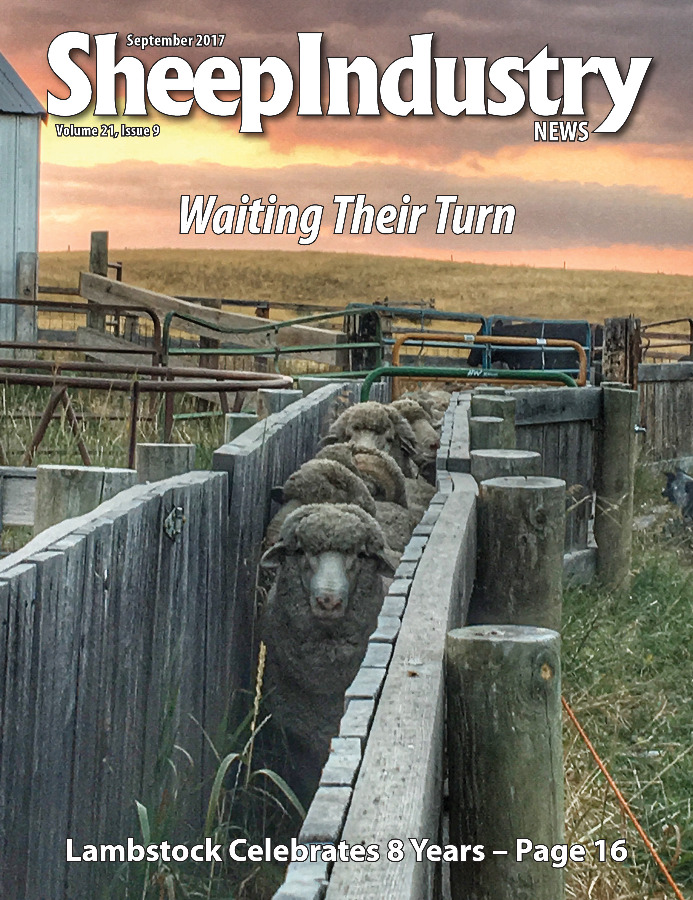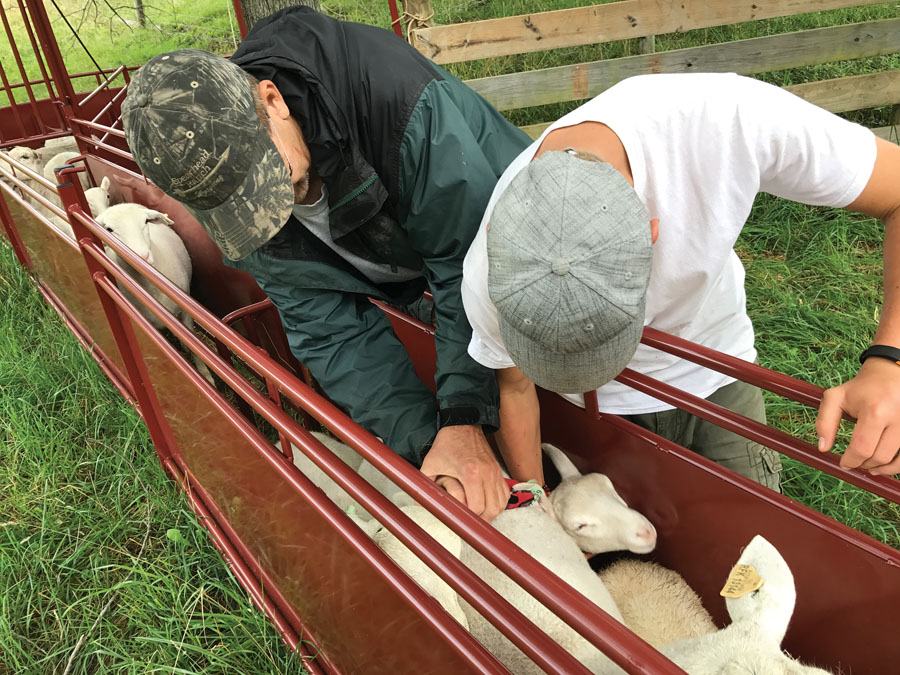
- September 2017
- President’s Notes
- AmericanWool.org Launches
- Priority 1: Parasite Resistance
- Lambstock 2017
- Kopanke Earns Scholarship
- Clements Perseveres in South Dakota
- Court Upholds Wyoming Grazing
- Industry Impact Study Available
- Committee Discusses H-2A
- Executive Board Meets in Park City
- Market Report
- The Last Word
The Last Word

Hands-On Education in West Virginia
Kyle Partain
Sheep Industry News Editor
Association staffs are often a hodgepodge of characters. They’ve been assembled to achieve certain tasks that must be done to effectively run an association. Having worked for three associations in my career, I’ve come to realize that there’s a small percentage of that staff that actually understands the industry on the highest level. Let me explain.
 I’m not a sheep producer. I don’t believe I’ve ever said anything in this space (or anywhere else) to try and convince anyone that I am a sheep expert. I’m a writer, an editor, a capable photographer and a guy who enjoys dealing with social media. I was hired to do those jobs, not because I knew anything about the industry. We have a chief financial officer who deals with the money. Larry Kincaid understands the ins and outs of financing the work of our association. Roles such as these are important to administer ASI’s work on a daily basis.
I’m not a sheep producer. I don’t believe I’ve ever said anything in this space (or anywhere else) to try and convince anyone that I am a sheep expert. I’m a writer, an editor, a capable photographer and a guy who enjoys dealing with social media. I was hired to do those jobs, not because I knew anything about the industry. We have a chief financial officer who deals with the money. Larry Kincaid understands the ins and outs of financing the work of our association. Roles such as these are important to administer ASI’s work on a daily basis.
But we also have three staff members who were sheep producers long before they were ASI staff. Peter Orwick, Rita Kourlis Samuelson and Paul Rodgers are the ones I turn to when I need an answer to questions that are industry specific. These three are passionate about sheep because this industry is how their families made a living long before they came to work for the association. Chances are, they’ll continue to be sheep producers long after retiring from ASI. Let’s face it, there are some things you just can’t know about raising sheep until you’ve spent a few years pulling lambs in the middle of cold, winter nights.
I do my best to glean some of that knowledge when the opportunities arise, which is why I jumped at the chance to spend a few hours at Paul’s place in the mountains of southeast West Virginia on a recent trip back east. Paul and his wife, Debi, are the sixth generation to run sheep on this land. They were sorting and shipping lambs that particular day, so it was a rare chance for me to be hands-on with the industry for a few hours.
What I learned is that I’m not ready for the big-time just yet. Ewes were tagged in the left ear, rams on the right. Or was it the other way around? And was that their left or my left? I kept forgetting, which meant I wasn’t much help at times. Obviously, I understand the basic anatomical differences between a ewe and a ram, but I found myself unwilling to do the necessary investigation to determine gender. Not that I usually had time for such a process anyway.
I proved useful in sorting at one point when I merely had to stand in the hole as rams were sorted my way into a loading chute. But let’s face it, I was essentially a human paper weight in that whole process. Just when I had my role figured out, we moved to a new area with a different setup, and I was lost again. Unfortunately, I had to abandon the family before the job was finished to head down the road for another story. I doubt, however, that the Rodgers’ even noticed the loss.
This is why Paul understands sheep health. He was doctoring hooves and deworming lambs when necessary that day. This is why he understands mandatory price reporting, because it affects his bottom line on a daily basis. Small associations need a whole host of characters to make things work, but there should always be at least a few who understand that particular industry from the inside out. Otherwise, they’ll be as lost as I was on that West Virginia mountaintop one rainy August day.

